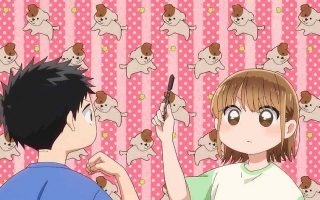As always, I think it’s important to draw a distinction about just what Chi.: Chikyuu no Undou ni Tsuite is and is not. Certainly there was a moment here when I felt a degree of realism was falling away. Yet it was also that moment that serves as one of the dramatic highlights of anime in 2024 for me. That makes it – and the series as a whole so far – a triumph rather than a failure. This is a drama. It aims to tell a story while enlightening the human experience. It attempts to reveal larger truths about science and faith in doing so. And it’s succeeding on both scores in splendid fashion.
To be clear, I don’t find anything remotely unrealistic in Orb’s drawing a clear hero-villain narrative in the context of its story. I’m perfectly comfortable saying that the Inquisition – and by inference, the Church – were the villains in the matter at hand. Those striving to expand our understanding of the natural world despite suppression (or worse) were heroes. That doesn’t mean they were all heroic in character – and indeed, Badeni is hardly portrayed as a sympathetic figure. It doesn’t mean many on the other didn’t hold the (twisted) belief that they were suppressing and torturing for the good of humankind. But in the larger picture there are times when one side is simply right and the other wrong, and this was one of them.
That Chekov’s diary from a few eps back is the undoing of Badeni and Oczy. That’s what drew the Inquisition’s attention to what was brewing locally. Nowak stumbling across Oczy and Badeni with his daughter was bad luck, but he’d have found them sooner or later anyway. What the circumstances do, however, is make this personal for him. And that’s obviously not a good thing. He does his usual smarmy act when he confronts them in town and demands (let’s not kid ourselves) to see their research. Badeni is the better liar under pressure and he might or might not have done enough to put Nowak off their scent, but the presence of the necklace removes any doubt.
Badeni is no fool, and determines that the pair of them should get the hell out of Dodge within a day. And when Oczy mentions the necklace and its history, he upgrades it to an hour. He sets about burning almost all of his research. Not only because he’s trying to destroy evidence, but because he doesn’t want it to fall into the hands of another researcher who might beat him to the prize (indeed, this almost seems like his greater worry). This sets off a fascinating conversation between he and Oczy, which is the moment I was referring to in my first paragraph. Was it realistic that a man like Oczy might say the things he said in this situation? I think that’s debatable at best. But damn, it sure as hell was great storytelling.
I’ve spoken before about the overlap of faith and science in this series, and it’s one that’s tackled from several different angles. Oczy – uncharacteristically bold – asks whether Badeni might not be mistaken to isolate himself from other researchers. With no one around to notice potential mistakes isn’t he risking the same fate as Count Piast – spending his life trying to prove a false theorem? Further, Badeni is chasing perfection and eschewing compromise when in fact, the truth might be imperfect and superficially ugly. This is where it boils down to the type of faith Oczy has developed – belief in the truth. As I noted a couple of weeks ago:
Here, again, truth rears its ugly head. Because no matter how hard we want it, wanting something to be true doesn’t make it true. That’s the nature of truth – it’s impassive and immovable. It doesn’t care what anyone wants or doesn’t want. The Professor’s mistake was his devotion to a truth he believed was true because it was beautiful. In fact, true science must believe that the truth is beautiful, even when it’s ugly, simply because it’s true.
Oczy hits the nail on the head here. In his devotion to finding a pure answer not tainted by imperfection (or collaboration) Badeni is really no different from one acting on blind religious faith. It’s quite a beautiful moment – even if it was a swan song for Oczy, as I fear is going to be the case. And while Badeni is not persuaded, he’s clearly impressed – and realizes he’s underestimated this man. That soon enough becomes moot, however. Those keen eyes spot the inquisitor’s carriage in the far distance, and Oczy estimates they might have only four or five minutes until its arrival.
For Oczy to do what he did – offer to sacrifice himself to buy time for Badeni to escape even after Badeni tells him it will likely consign him to Hell – was an act of profound courage. You can see both men believe this. Badeni is a heretic but also a man of the cloth, like so many researchers of his day. Oczy has grown to love the truth and indeed the human world, but never lost his belief in the next one. Badeni taking time to offer a blessing for Oczy’s salvation was another heartbreaking moment. And the proof of the bond between them, and the respect that Oczy has finally earned from him. And I would think it meant a great deal to Oczy, as well.
If Nowak were a normal inquisitor – and this not a work of fiction – I would imagine he had a fair chance to survive the confrontation and its aftermath. But Nowak pretty much has to subdue him to move the story forward, and his background as a mercenary makes him a formidable opponent with a sword in his hand. He’ll try and take Oczy alive for obvious reasons, and I’m nauseous thinking about what’s going to come next. But it all marks a completely absorbing and even profound piece of writing, as Chi.: Chikyuu continues to plant an early marker that other 2025 series may struggle to match.
The post Chi.: Chikyuu no Undou ni Tsuite (Orb: On the Movements of the Earth) – 12 appeared first on Lost in Anime.




